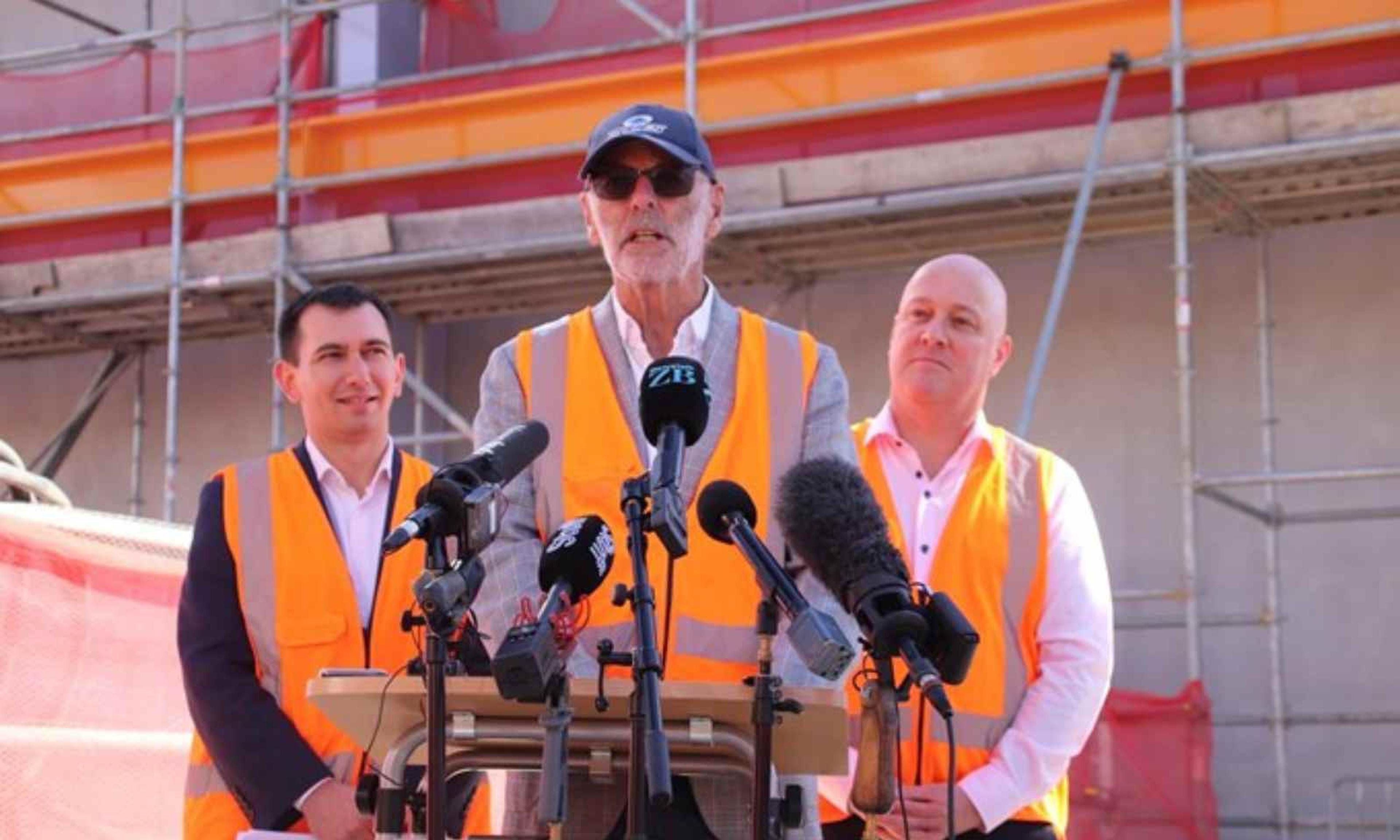

Auckland Mayor Wayne Brown at a joint press conference at Watercare’s Central Interceptor construction site in Māngere with Prime Minister Christopher Luxon and Local Government Minister Simeon Brown.
Photo/ Our Auckland
Pacific economist is cautiously optimistic new water plan can save Auckland from drowning in debt
Auckland Mayor Wayne Brown has announced a new model to try and keep the city's water rates down while still tackling the agency's infrastructure challenges.


Breaking the cycle of silence: Redefining Pacific masculinity


Auckland councillors condemn removal of well-being factors in local decisions

Vanuatu in crisis: Health concerns arise as NZ joins search for earthquake survivors

Breaking the cycle of silence: Redefining Pacific masculinity


Auckland councillors condemn removal of well-being factors in local decisions
The government announced this week what it describes as a "financially sustainable model" for how Auckland's water systems are managed
But a Pacific economist says the new proposal, called Local Water Done Well lacks details about how the changes will be implemented over the long-term.
The announcement was made at a joint press conference at Watercare’s Central Interceptor construction site in Māngere by Auckland Mayor Wayne Brown and Prime Minister Christopher Luxon and will enable the council-controlled organisation to borrow more money for long-term investment in water infrastructure.
The mayor stated that the previously predicted 25.8 per cent water rate rises can now be avoided.
“This outcome is exactly what we’ve been looking to achieve," Mayor Brown said.
“The previous government wasted $1.2 billion over several years to deliver a water reform plan that was wasteful, took away local control, and was divisive. It was resoundingly rejected by voters."
International credit ratings agency S&P Global Ratings has determined the model would mean Watercare’s borrowing is considered separate from Auckland Council for credit rating purposes.
However, as TVNZ reports, Labour’s local government spokesperson Kieran McAnulty believes the government’s plan will still cost Aucklanders more in rates than if the Labour's reforms had not been repealed.
McAnulty said water charges would increase by 7 per cent under this new deal, as opposed to 2 per cent under Labour's affordable water plan.
"This is because the Auckland/Northland entity would’ve had a credit rating of AA, while Watercare will be BBB at best, so the cost of borrowing will be larger."
Watch economist Filipo Katavake-McGrath breakdown what this announcement means:
But with inflation still high and unemployment rising, what does this mean for a typical Pacific family? 531pi's Pacific Mornings turned to economist Filipo Katavake-McGrath to help explain it all.
“What has been announced is that the council will now have the ability to hand over the ownership of their water assets, the pipes, the pumps, the water stations, to a separate company - who are able to borrow money.
"But what we heard was a lot about the effect but not a lot about what was changing.
“As Pacific people, we care about the safety of water so always having safe and clean water is a huge factor. But for our families who are going through redundancies or reduced work, anything that can help in the back pocket is always helpful."
However Katavake-McGrath points out that financial sustainability can mean different things to different people and questions remain.
”What we don't quite know is about the ownership of the water assets long term. And we also don't know about the total cost and whether this new approach will be able to raise the money in a sustainable timeframe.
“But it looks as if Watercare has the opportunity to widen its investment base, and so one thing I'm really interested to see is whether they will go down the path of allowing a vehicle like Kiwisaver to invest in [our] water system."

